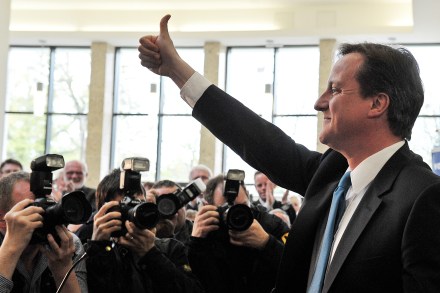Bonfire of the vanity photographers
Today is a very good day to bury bad news. Prince William and Kate Midddleton’s engagement is going to dominate the news and the front pages for at least the next 24 hours. Almost any other story can be slipped out unnoticed in the current circumstances. So it was a convenient time for Downing Street to announce that the photographer and the videographer would be moved off the public payroll and back onto the Tory one. This means that their work will not be able to appear on any government websites. Downing Street’s correction is welcome. But in reality, the damage has already been done by this story. It will












